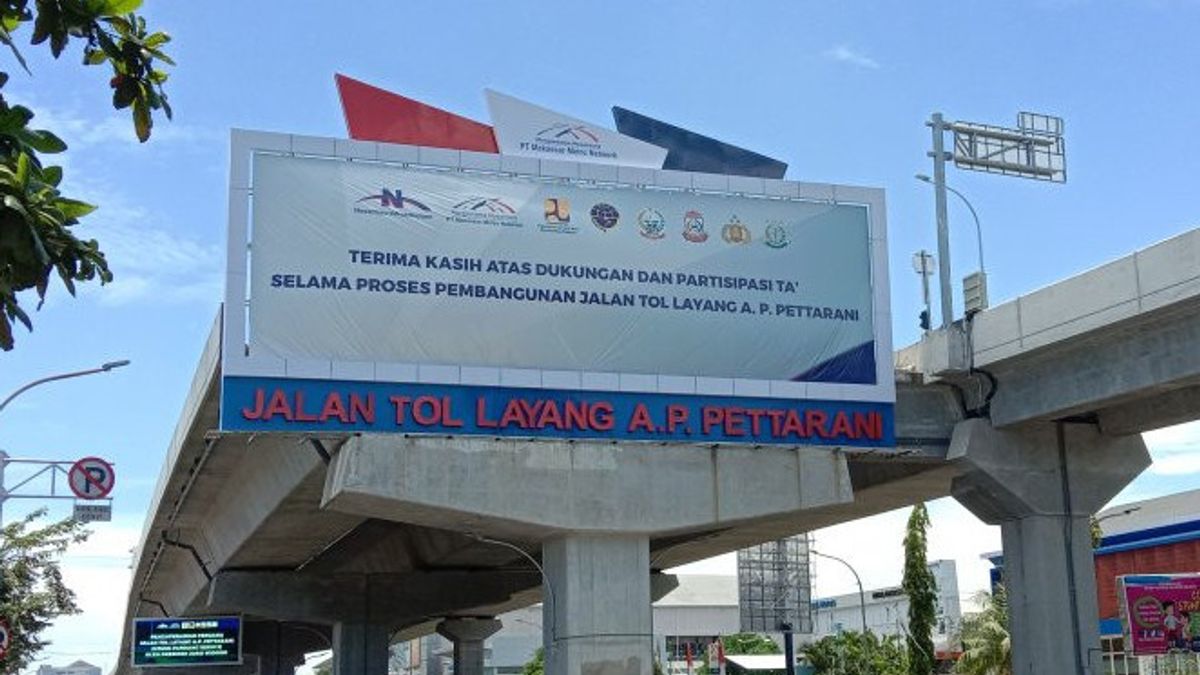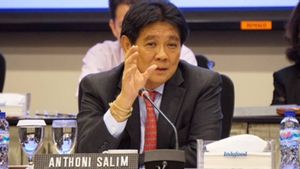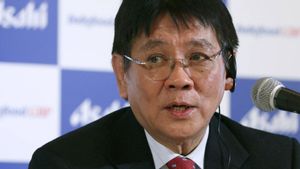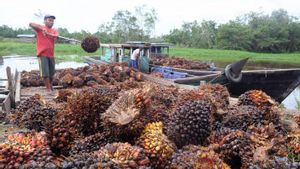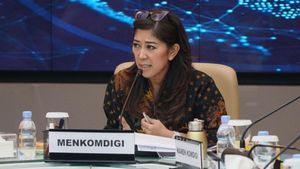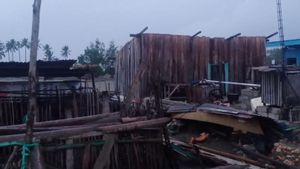JAKARTA - Makassar City has a new icon, namely the AP Pettarani Flyover Toll Road. The 4.3-kilometer-long project was inaugurated by the Minister of Public Works and Public Housing (PUPR) Basuki Hadimuljono on Thursday, March 18.
The AP Pettarani Flyover Toll Road is considered very important because it connects the southern part of Makassar City and Gowa Regency with Soekarno-Hatta Port, Makassar New Port, and Sultan Hasanudin International Airport.
President Director of PT. Makassar Metro Network (MMN) Anwar Toha revealed, after going through several long stages, the construction of the Pettarani Flyover Toll Road was finally completed and fully operational.
"This elevated toll road can be operated and can be immediately utilized for various productive activities by the whole community. Through the inauguration in front of the Minister of Public Works and Public Housing, we are proud to present the contribution of the work of thousands of the nation's children who participated in the development of national infrastructure to create connectivity in Eastern Indonesia," said Anwar in his written statement, as quoted on Friday, March 26.
He also gave his highest appreciation to a hero, Andi Pangerang Pettarani, who became a symbol of infrastructure development in Eastern Indonesia, whose name is immortalized as the name of the toll road segment, the new icon of Makassar City.
The construction of the AP Pettarani Flyover Toll Road, Makassar is an example of the private sector's contribution to national infrastructure development. PT. Marga Utama Nusantara (MUN) through its subsidiary PT. Makassar Metro Network (MMN) together with the regional government which is also supported by the central government, initiated this development to support the economic system and mobility in the area.

For information, PT. Marga Utama Nusantara is a business unit of PT. Nusantara Infrastructure Tbk (META). Well, PT. Nusantara Infrastructure Tbk in 2017 has acquired its shares by Anthony Salim through the Salim Group.
The acquisition of Nusantara Infrastructure was carried out by the 4th richest person in Indonesia through its subsidiary based in the Philippines, Metro Pacific Investments Corp (MPIC), a company controlled by First Pacific Company Ltd - the Salim family investment company -.
And as of the end of February 2020, PT. Metro Pacific Tollways Indonesia, which is a subsidiary of Metro Pacific Investments, controls 73.80 percent of Nusantara Infrastructure shares.
The construction of the Pettarani Elevated Toll Road involved the main contractor PT. Wijaya Karya Tbk or WIKA and Nippon Koei Co Ltd. Then PT. Indokoei International and PT. Cipta Strada as supervision consultants, and PT. Virama Karya as independent quality control consultants.
When it was built, this project received credit funds from PT. Bank Central Asia Tbk (BCA) and Bank Sulselbar. That happened in 2018, where BCA distributed a syndicated loan of IDR 1.3 trillion to PT. Bosowa Marga Nusantara (BMN), which is a subsidiary of PT. Marga Utama Nusantara (MUN).
The syndicated loan consists of conventional financing provided by BCA and Bank Sulselbar. Of the total ceiling of IDR 1.54 trillion, BCA disbursed syndicated loans of IDR 1.3 trillion and Bank Sulselbar IDR 230 billion.
SEE ALSO:
Under this cooperation agreement, BCA also acts as Joint Mandated Lead Arrangers and Bookrunners (JMLAB), Facility Agent, Guarantee Agent, and Escrow Agent. The signing of a syndicated credit facility agreement with a period of 12 years.
Salim Group was once the owner of BCA
In other words, there is a role for the two "giant" entities in the construction of the Pettarani Makassar Flyover Toll Road, namely Anthony Salim and BCA. Anthony Salim, the boss of Indofood, has had BCA for a long time.
The Salim Group, a business conglomerate built by Sudono Salim or Liem Sioe Liong, was once listed as the owner of BCA, which is currently the largest private bank in Indonesia. However, due to several problems that have plagued the company since the 1998 crisis, the Salim Group had to be willing to relinquish its ownership of BCA.
After being released by the Salim Group, BCA was later purchased by the Djarum Group. In fact, if you look back again, BCA is one of Salim's main coffers to earn billions to trillions of rupiah every year.

So at the time of the 1998 crisis, the economic sector was truly shaky. The Salim Group was also affected, until finally, a number of their assets had to be sold, including BCA, because they received Bank Indonesia Liquidity Assistance (BLBI).
It is known that there were 48 commercial banks with problems due to the crisis at that time, including BCA belonging to the Salim Group. The total Bank Indonesia Liquidity Assistance (BLBI) bailout funds issued amounted to IDR 144.5 trillion. However, 95 percent of the funds were diverted, according to the findings of the Supreme Audit Agency, and are considered the biggest corruption in Indonesia's history.
In 1998 BCA became a Bank Take Over (BTO) and was included in the recapitalization and restructuring program implemented by the Indonesian Bank Restructuring Agency (IBRA). Then in 1999, the BCA recapitalization process was completed, in which the Indonesian government through IBRA controlled 92.8 percent of BCA's shares as a result of an exchange with Bank Indonesia Liquidity Assistance (BLBI).
In the recapitalization process, related party loans are exchanged for government bonds. Since then, the Salim Group is no longer the controlling shareholder of BCA.
The English, Chinese, Japanese, Arabic, and French versions are automatically generated by the AI. So there may still be inaccuracies in translating, please always see Indonesian as our main language. (system supported by DigitalSiber.id)
